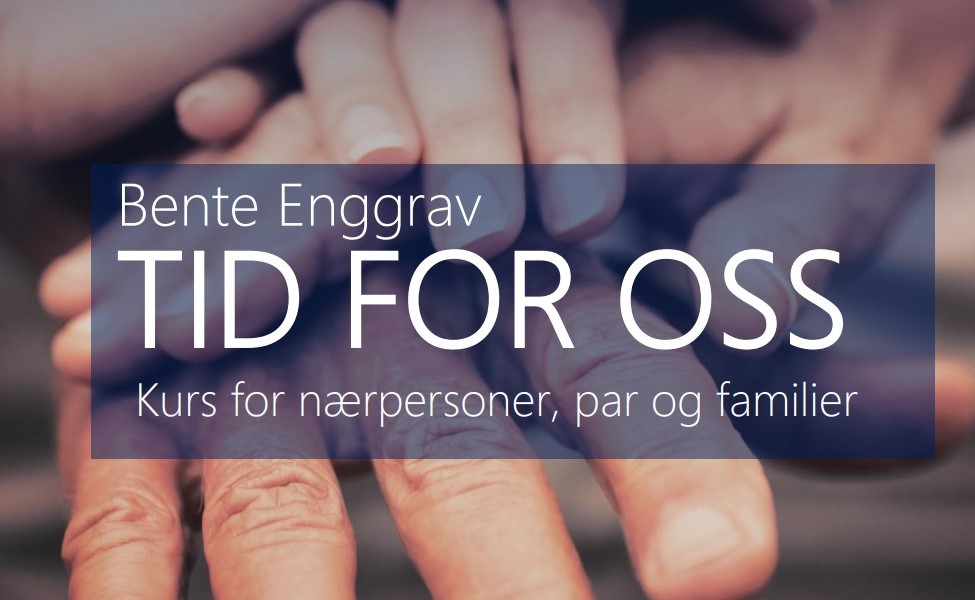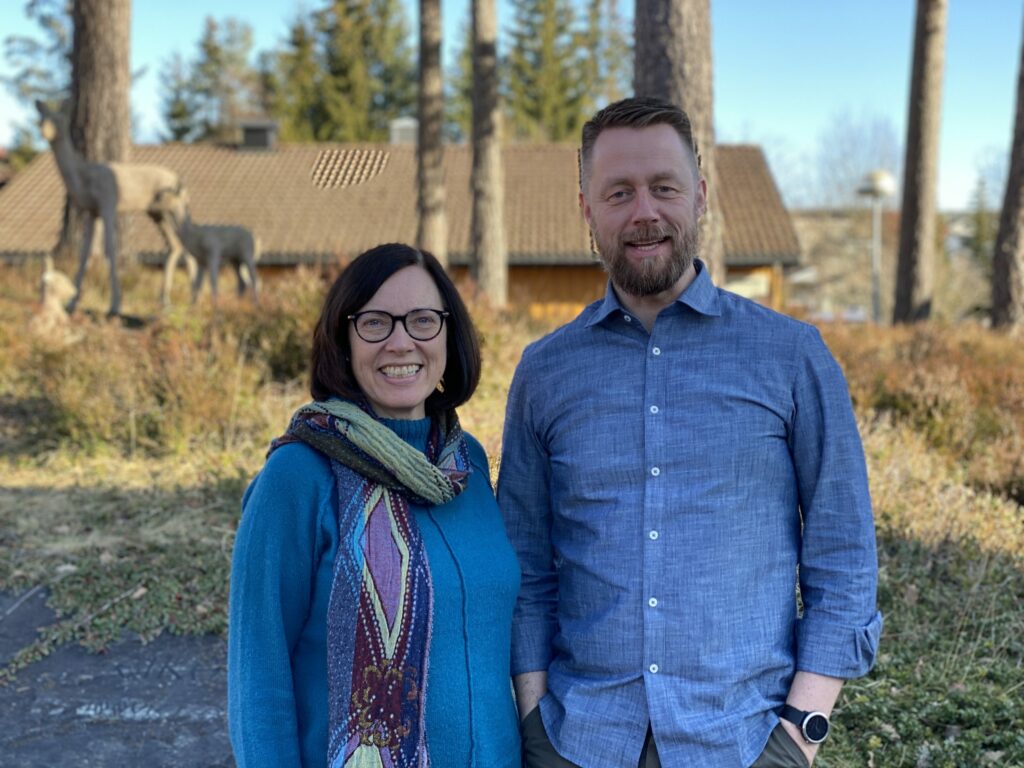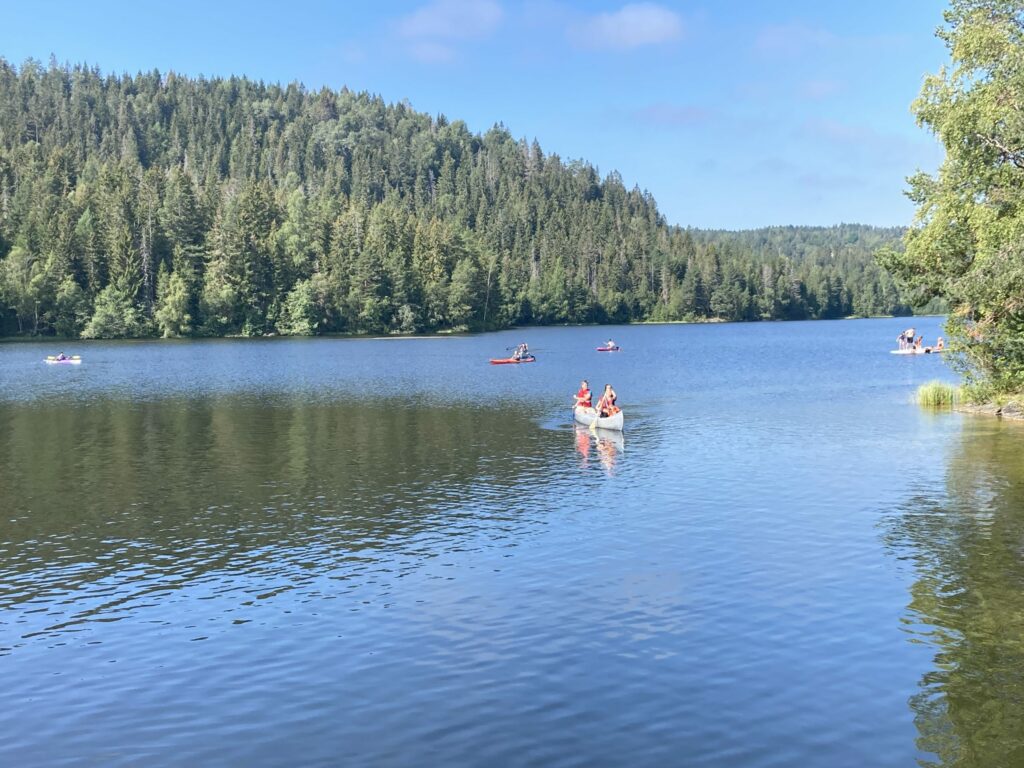Time for us - a report on courses for carers, couples and families

Bente Engrav has written this report after many years of experience with courses for carers, couples and families. She describes that "Planning and implementing courses for families, couples and carers has been exciting and instructive. It has been important to work closely with users and families in order to "customise" the courses based on their needs and desired topics. Collaboration with professionals nationally and internationally has also been key to developing good course programmes." Bente has retired, but her passion for ensuring good courses for carers continues.

The family around people with combined sensory loss must also be given focus
In Eikholt, participants have the opportunity to optimise their vision and/or hearing and learn new forms of communication. Good communication is important for maintaining and developing good relationships with others. Being equal and participating in one's own family or with other close people can be crucial to counteracting isolation and loneliness. The consequences of sensory loss can also be challenging for family members, partners and carers. That's why it's important that Eikholt courses also focus on their needs. Relatives are entitled to apply for adaptation courses through the National Insurance Act.
In recent years, there has been an increased focus in Norway on the challenges faced by carers. When someone in the family gets or has an illness or disability, this will affect those around them. In a project about living with chronic illness in the family, the disease is described as "A guest who never leaves":
"Chronic illness is a guest who is neither invited nor welcome. You can't politely ask him to leave, nor can you throw him out. It is a guest who has come to stay. How should the family that lives here on a daily basis, the ones who actually own this house, live with this guest? Should he be allowed to occupy the whole house, should they lock him up in a closet, or is it better to give him his own room and leave the door ajar?" (Fjerdstad & Stene, 2007, p. 1249).
Some of the topics on the carer course:
- Minimising shame
- Being a symptom carrier of someone else's suffering
- Guilty conscience
- Normal reactions to stress in relatives
- Boundary setting
- Concern for the future
- How to take care of ourselves, the "strawberry rack"

Family course
Eikholt has organised family courses for many years. The family courses often start with a user contacting us and wanting a course for their family or together with other families in a similar situation. It is the people who live with sensory loss who "know where the shoe pinches". They often have clear goals for what they want to get out of the family courses, and the courses are therefore planned in collaboration with the user/family. Useful and fun activities are a big part of the family course programme.
"There is often a strong desire for children and/or partners to gain a greater understanding of what sensory loss means for everyone in everyday life"
Parking prices
A study from the Netherlands showed that the person in the relationship who was ill experienced the most stress related to the illness itself. The partner experienced the greatest strain by feeling helpless, providing care, being given more responsibility and having less time for themselves (Fjerdstad, 2010, p. 196). Good communication about how to support each other can make the couple better equipped to cope with the stresses and challenges they face on a daily basis.
In recent years, the pairing courses have consisted of various topics that we realise are desired by many:
- The importance of sight and hearing in communication.
- Ledsaging - how to accompany your partner in a good way
- How to use hearing aids in communication and companionship
- Haptic and/or tactile communication in relationships
- Communication in relationships - PREP
Feedback from course participants has been that attending a couple or family course has given them the opportunity to talk about the challenges they face in their relationship or family life. For many, it has been important to meet other close people or families for an exchange of experiences and support.
People with combined sensory loss have described it as important that their carers receive the same knowledge about sensory loss as they themselves have received
If you want to read more about the content of the courses, you can click here to get to the report. If you have any questions about courses, please contact us.
